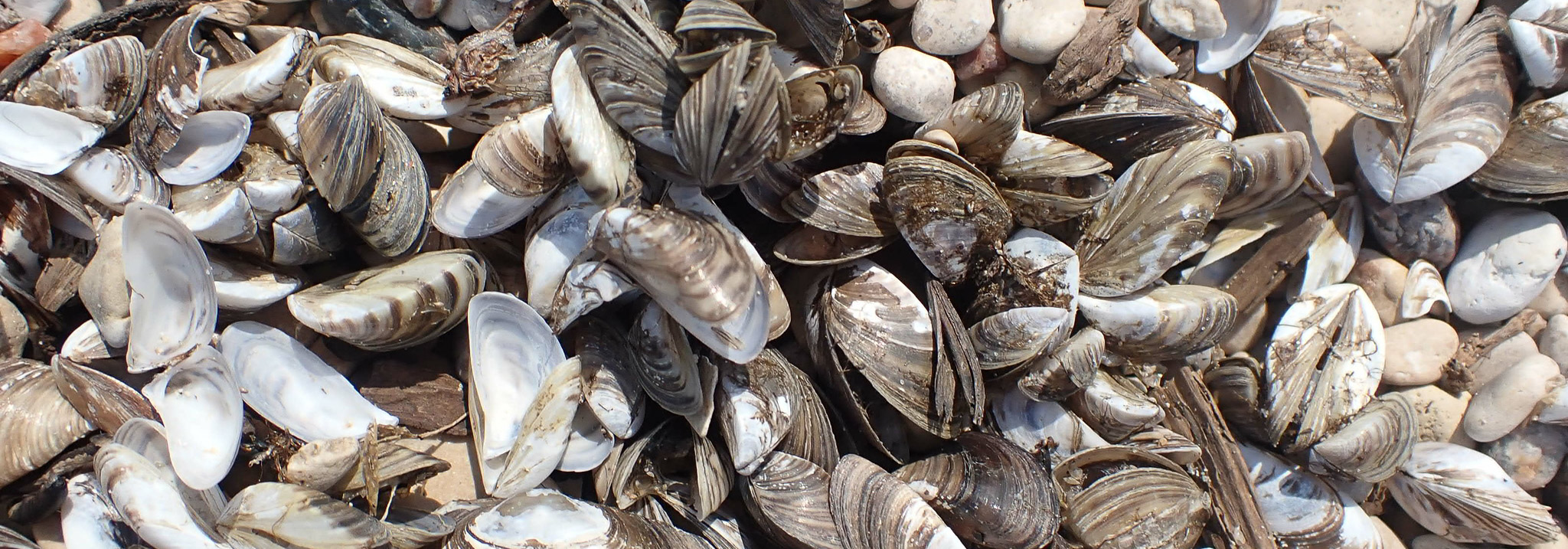The Shuswap Watershed Council (SWC) and the Columbia Shuswap Invasive Species Society (CSISS) are raising the alarm about new information released in a report from the Province of BC. The report, published at the end of May, summarizes the potential costs to British Columbia if invasive Zebra and Quagga Mussels (ZQM) were to arrive in BC waters.
The report estimates an annual cost range from $64 – 129 million to deal with the impacts of invasive mussels. This estimate is up from a 2013 study that estimated the costs of a ZQM invasion to be approximately $53 million, annually.
“The potential economic and ecological impact of a Zebra or Quagga mussel infestation in the Shuswap and across BC is tremendous. These cost estimates underscore the importance of preventing an invasion of ZQM to beautiful BC,” says Erin Vieira, Program Manager for the Shuswap Watershed Council.
The report breaks down the cost estimates on an annual basis, as follows: hydro infrastructure ($17.2 – 23.3 million), municipal and domestic water supply infrastructure ($8 – 49.7 million), agriculture and golf course irrigation ($2.5 – 5.3 million), maintenance to boats and marinas ($3.7 – 8.1 million), lost profits and revenues from the tourism industry ($2.5 – 12.6 million), loss in residential property values and property taxes due to reduced water quality and shoreline values ($30.2 million). These costs would be borne by rate payers, tax payers, business and property owners. The report clarifies that if accidentally introduced to BC, it would take time for ZQM to establish and reproduce and costs would increase gradually over time to the levels mentioned in the report.
The report highlights that although ZQM have been prevented from establishing in the Pacific Northwest, favourable conditions in BC’s freshwater ecosystems make them a significant risk. To-date, ZQM occur in Manitoba, Ontario, and Quebec as well as over 24 American states. The primary way that ZQM spread is via watercraft and other water gear. Adult mussels can attach themselves directly, and juvenile mussels float freely in trapped water within boats and other items. The mussels can survive a long journey from one waterbody to another attached to watercraft, despite being out of water for several days.
“Preventing the spread of invasive mussels is key. Watercraft users should clean-drain-dry every time they move their watercraft – that includes boats, paddleboards, kayaks and canoes, inflatable dinghies, personal watercraft, and more,” says Robyn Hooper, Executive Director of CSISS. “All it takes is one contaminated boat or watercraft launching into BC waters, and our freshwater could be altered forever.”
Travellers coming to BC with a watercraft are required to stop at watercraft inspection stations along their travel route. A member of the BC Conservation Officer service will inspect, and if necessary, decontaminate travellers’ watercrafts.
“The threat of invasive mussels is never going away,” says Vieira. “The Shuswap Watershed Council is committed to continuing with our work to educate and advocate for better protection measures from the provincial and federal governments in order to minimize the risk of an invasion.”
The full report from the Province, “Potential Economic Impact of Zebra and Quagga Mussels in BC” (May 2023) is available on the provincial website, https://www2.gov.bc.ca/gov/content/invasive-mussels









